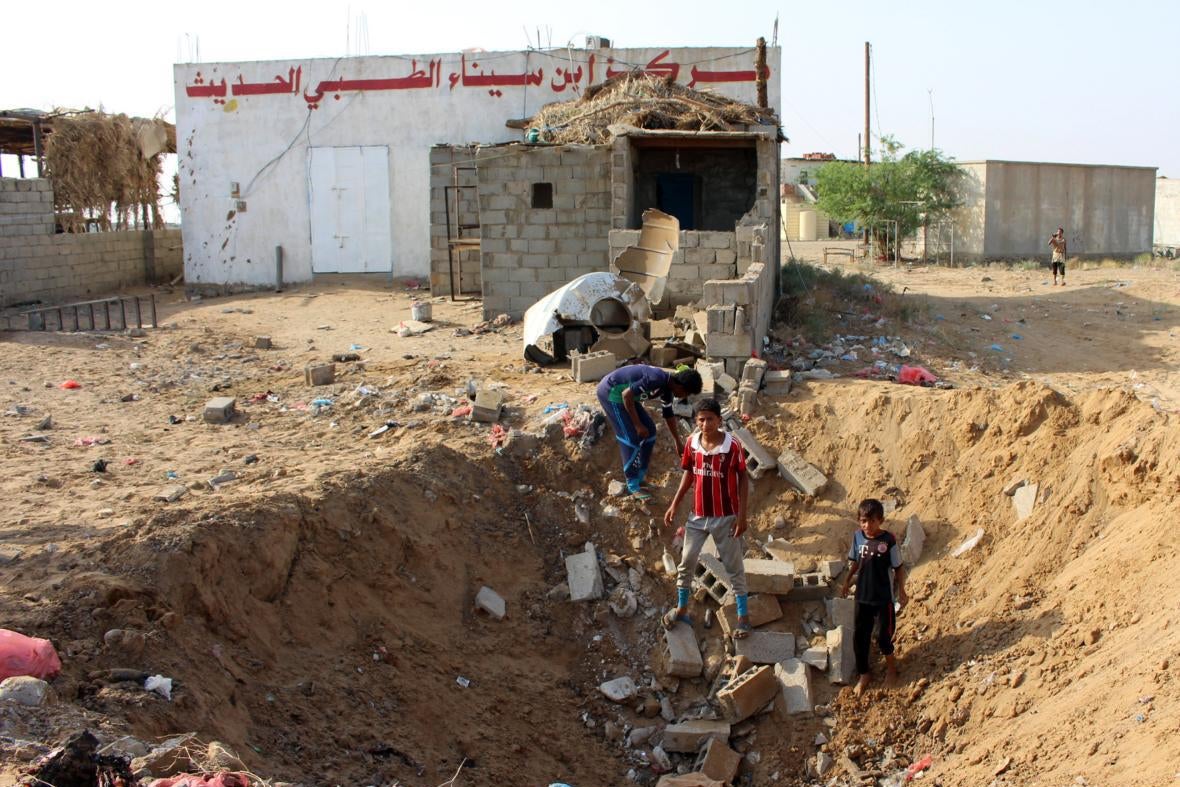The U.S. Congress made a rare show on Monday night of exercising its oversight powers on matters of war and peace, with the House voting overwhelmingly on a resolution stating that U.S. participation in the Saudi-led bombing campaign in Yemen is not covered under existing authorizations for the use of military force, is counterproductive to the fight against al-Qaida, and is contributing to a dire humanitarian crisis in Yemen.*
But the largely symbolic measure, sponsored by Rep. Ro Khanna, is a significantly watered-down version of a bipartisan resolution the California congressman introduced in late September, which would have invoked the War Powers Resolution of 1973 to prevent further U.S. military assistance to the campaign. That law, passed in the wake of the Vietnam War, prevents the president from introducing military forces into a conflict for more than 60 days without congressional authorization. Its definition of introducing forces includes any action to “coordinate” or “participate” in the actions of a foreign military.
“Our refueling Saudi airplanes is coordination with a foreign power. This should trigger the War Powers Act,” Khanna told me in a recent interview. The U.S. has been providing intelligence and logistical support for the Saudi campaign since it began in 2015 and has increased that support since Donald Trump took office, despite humanitarian concerns and the U.S. government’s own assessments that the campaign is hampering the fight against al-Qaida.
Still, this would be an unusual application of the War Powers Resolution, and it was always a long shot. Congress has only twice directed the termination of a military engagement, in Lebanon in 1983 and in Somalia in 1994, but both those cases involved the deployment of U.S. ground troops, and in both casesthe White House supported the withdrawal, so there was no showdown between Congress and the president. The president has typically had more latitude for instances where the U.S. is coordinating with or supporting another country’s military, though that’s come under more scrutiny after the killing of four U.S. Green Berets in Niger last month.
Khanna’s original motion also faced an uphill battle, with opposition from both House Speaker Paul Ryan and House Minority Whip Steny Hoyer.
The compromise measure, which passed 360–30, did provide an opportunity for public debate on U.S. military support for Saudi Arabia. While previous White House administrations have generally backed the Saudi military alliance, the kingdom has faced a tougher road on Capitol Hill, including the bill passed last year allowing the families of 9/11 victims to sue the Saudi government.
“People are very critical of the Iranians. I think we have every right to criticize the Saudis as well,” Rep. Walter Jones, a North Carolina Republican and co-sponsor of the original measure, told me last month. “When President Trump went over there and did the sword dance, I thought, ‘My gosh, where are we going now?’ ”
The events of the past two weeks have also raised scrutiny on the issue. Saudi Crown Prince Mohammed Bin Salman has stunned many people by detaining a number of his relatives as well as, possibly, the prime minister of Lebanon. The Saudi-led coalition also closed all air, land, and seaports in Yemen to prevent shipments of arms to the Houthi rebels from Iran, responding to the launch of a missile toward Riyadh. Humanitarian groups have warned that the blockade is likely to worsen the dire humanitarian crisis in Yemen, which is already afflicted by mass starvation and the worst cholera epidemic in history. Riyadh announced yesterday that it is backing off the blockade, but there’s little indication that the Saudis will back off on the deadly airstrikes. One of them killed 29 civilians at a market in the country’s northern region two weeks ago.
“We have much higher standards in the United States on human rights issues, on making sure there are not civilian casualties,” Khanna told me. “We shouldn’t be complicit in the Saudi effort where they don’t have those standards and they don’t have that regard for human life.”
Beyond this particular conflict, Khanna also sees the resolution as part of a larger movement to reassert Congress’ role in matters of war. That movement also includes efforts to reopen the debate on the still-in-use 2001 Authorization for Use of Military Force—Sens. Tim Kaine and Jeff Flake have introduced a bill to repeal and replace the AUMF, and the secretaries of defense and state were called to Capitol Hill to testify on the topic last month—and Sen. Edward Markey’s bill to prevent the president from launching a nuclear first strike without congressional approval.
“There’s an emerging coalition of the right and the left, the Progressive Caucus and the Freedom Caucus, of people who are skeptical about interventionism and want a more restrained American foreign policy,” Khanna told me. “Eventually Congress will reassert its role in standing up to the executive branch on matters of war and peace.”
But the difficulties encountered so far by even modest measures to reassert that role suggest that it may be a while before the White House faces a significant challenge to its authority.
Correction, Nov. 14, 2017: This post originally stated that the vote had taken place on Wednesday. It was on Monday night.
